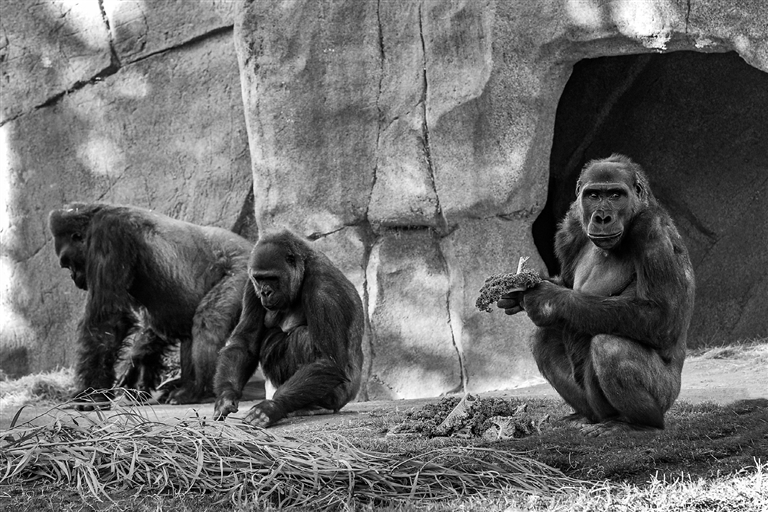
TWO gorillas at the San Diego Zoo Safari Park in the United States have tested positive for COVID-19, the zoo announced Monday. A third gorilla is symptomatic but did not test positive, and several others may also be infected, the zoo said. The gorillas’ fecal matter was tested after two of them began coughing and exhibiting “other mild symptoms” Jan. 6, the zoo said in a press release. The tests came back positive Jan. 8 and were confirmed by the USDA’s National Veterinary Services Laboratories on Monday. It is believed the gorillas may have been infected by an asymptomatic staff member. So far, zookeepers say the gorillas appear to be doing well. While only two of the gorillas tested positive, the zoo said it must assume all of them have been exposed since they live together. Lisa Peterson, the park’s executive director, told local media Monday that eight gorillas are believed to have the virus. “They are being closely observed and there is nothing to suggest today that they won’t make a full recovery,” the zoo said. It’s believed to be the first instance of the coronavirus being transmitted to great apes. The zoo said it cannot say for sure if the gorillas will develop any other symptoms, but noted the gorillas exhibiting symptoms are being attended to by veterinarians and the rest of the gorillas are being “carefully observed.” The zoo has been closed to the public since Dec. 6, according to CBS affiliate KFMB-TV. Animal populations have not been affected by the coronavirus nearly as much as humans, although a tiger at the Bronx Zoo in New York tested positive last April. In November, Denmark culled more than 15 million mink following an outbreak of a mutated version of the coronavirus. Some feared if the new strain was passed to humans it could have been resistant to the vaccines that were in development at the time. (SD-Agencies) | 
